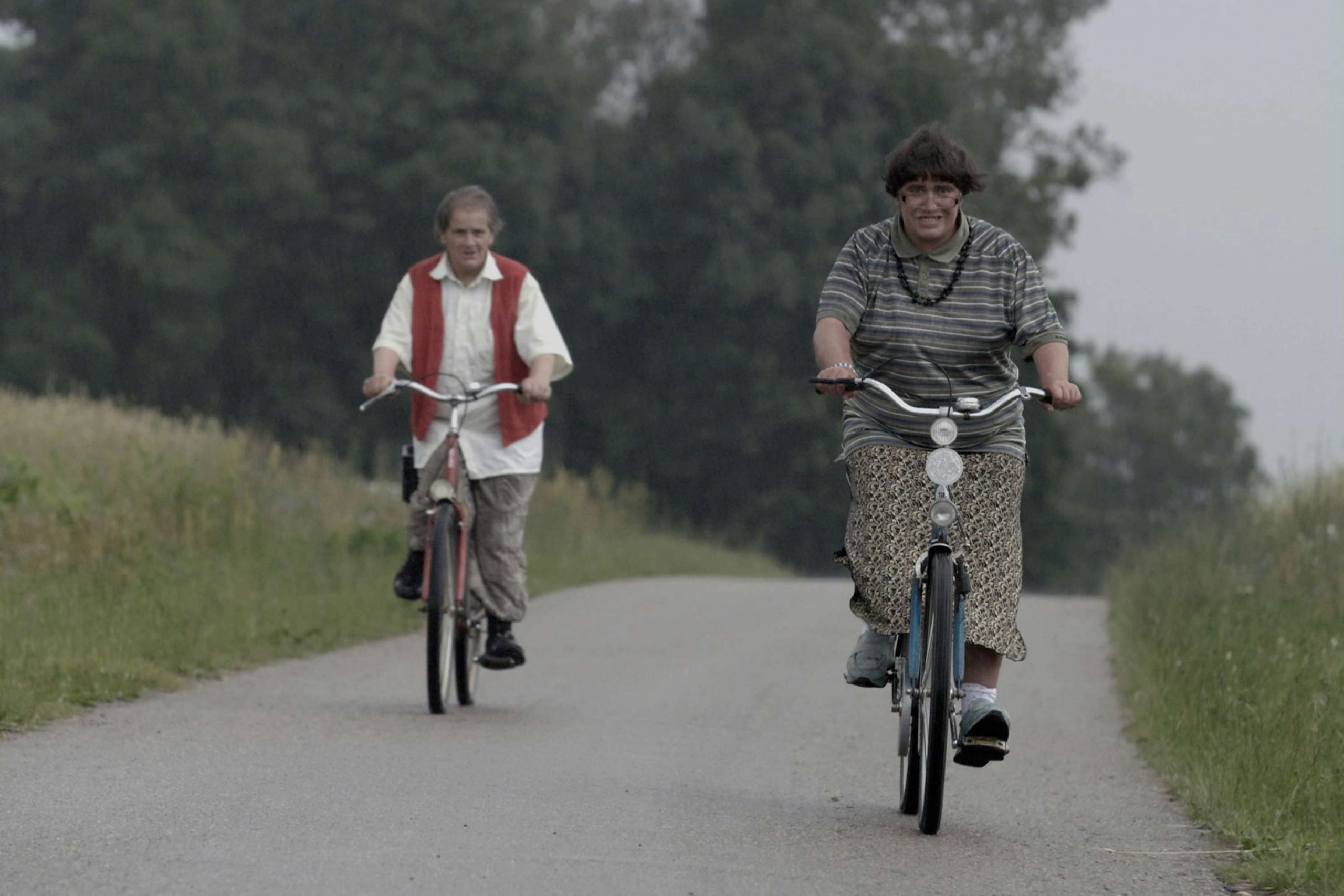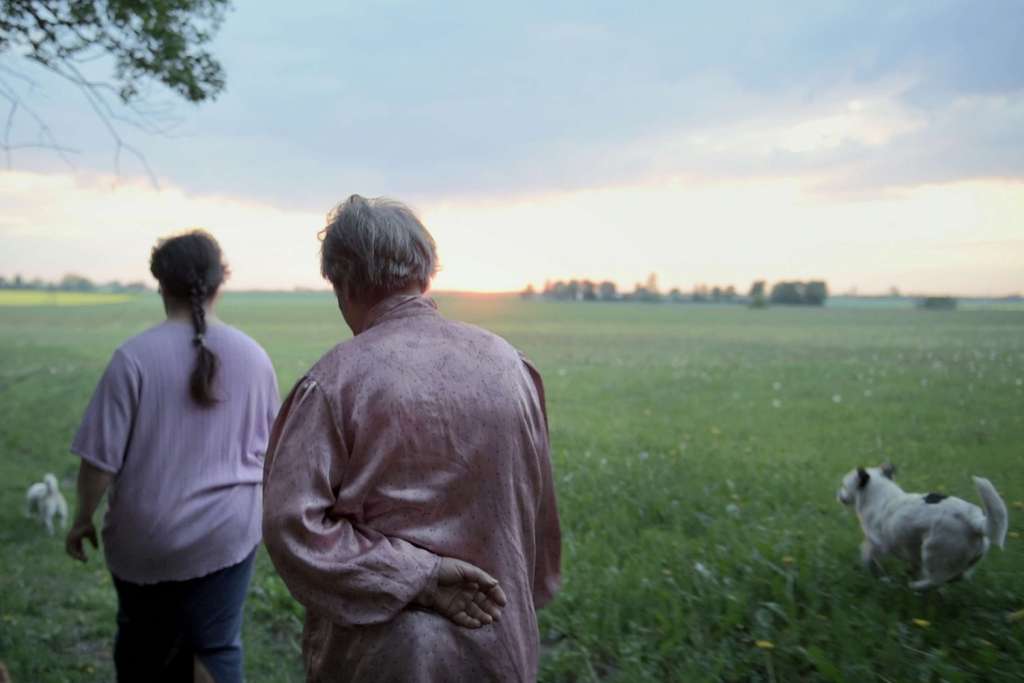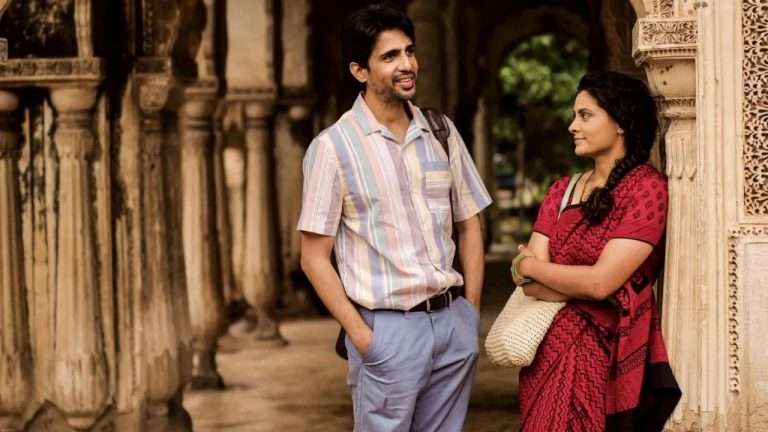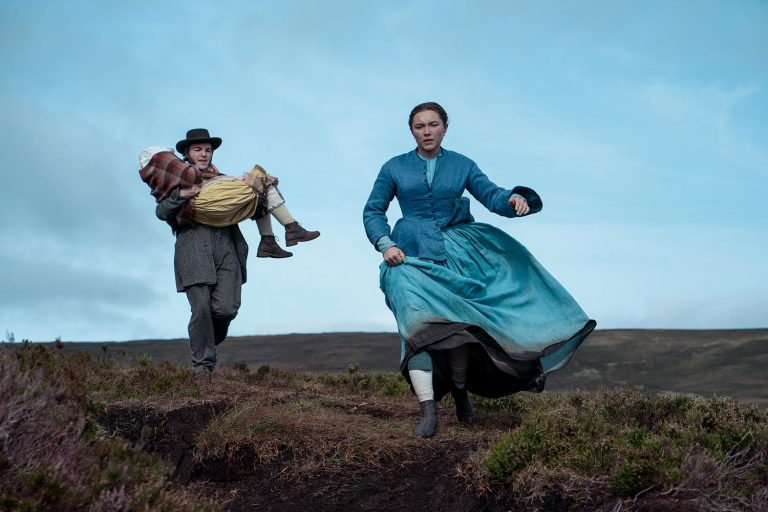Bucolic indicates the pleasant or romanticized aspects of countryside and country life. The literary genre of ‘Pastoral’ in fact evokes rural life in an idealized form, presenting it as a life of simplicity and devoid of corruption. Naturally, such literature preoccupied with the bucolic surroundings is written for the urban readers. Polish photographer and filmmaker Karol Palka’s melancholic and reflective documentary, Bucolic (Bukolika, 2021) focuses on the isolated lives of a mother and daughter, living in the very margins of society. The description says 65-year old Danusia and her daughter Basia, “live far away from the modern world, in tune with the rhythm and laws of nature, among animals and the spirits of the dead. “ However, Palka’s observation deconstructs certain idealizations associated with idyllic rural life, while also cherishing the blissful aspects of their enclave.
In Bela Tarr’s Turin Horse (2011), the austere and mundane lives of a farmer and his daughter were rendered in a manner that’s overwhelming as well as hypnotic. Similarly, in Danusia and Basia’s lives, there’s a lot of absence, longing, and repetition. And through the keen reflection of this space, Palka gradually makes us understand what it really means to live in harmony with nature. It’s interesting how Bucolic opens in the middle of the winter season. We are made to first acknowledge the harsh conditions. Danusia’s farmhouse is a ramshackle cabin with just a cluttered living room and a kitchen. There’s neither running water nor a bathroom. To celebrate Christmas, they clear the only table next to an old TV set, make a tiny Christmas tree and wait for the priest’s arrival.
Related to Bucolic: The Wandering Chef [2019] ‘SFF’ Review – A Rich Tribute to Maternal Love and the Remedial Power of Food
The only other person we see paying a visit to the domicile is a postman. A legion of stray dogs and few cats are part of the household. Danusia’s pension and the money they make from livestock – a couple of cows and few goats – are the source of their living. The brutally honest depiction of poverty and loneliness gives a rootedness to the documentary and then goes onto poignantly depict the spiritual and emotional realizations of the women.
Danusia believes in old rural legends such as imps and other mythical creatures. Moreover, in voice-overs, she relates her experiences of haunting to a woman, possibly a dead old friend. Basia, who seems to have a learning disability, also walks in the fields in silence and dances by the fire in the dead of night. In a manner, the mother-daughter pair themselves seems to have hailed from the spirit world.
Karol Palka mentions that it took him quite a few months to gain the women’s trust and get into their household. But what’s fascinating about Palka’s approach is the respectful distance he maintains from his subjects throughout the documentary. There is little information about their personal life, which we glean from the episodic interactions between Danusia and Basia. Though we learn a little about their inner world, Palka closely shows us – without romanticization – the routines involved in shaping one’s life according to nature’s rhythm. Basia often talks with a man named Franek, who sends her a CD player with songs. She waits for him but he never materializes.
Also Read: Brotherhood [2021] ‘Locarno’ Review – An Impressive Coming of Age Documentary
Though Bucolic initially shocks us with the pair’s rudimentary living conditions, gradually we get to observe the bliss in their lives. The caring of animals and their connection with it, the picnics when the weather is perfect in the evening, and many such small moments of quiet solitude push us to view the space as a sanctuary. At the same time, Palka’s unobtrusive gaze doesn’t shy away from the moments when one gets on the other’s nerves or during the occasional and brief quarrel. In fact, I was reminded of Albert and David Maysles’ renowned documentary, Grey Gardens (1975) when thinking about the dynamics between mother and daughter.

The most intriguing aspect of Bucolic is the score used. Although the documentary largely unfolds in silence with some diegetic sound, the jarring use of music on a few occasions is bewitching. It actually adds more feelings of melancholia and longing to the lives we witness on-screen. Also, I’d like to know some details on the song played at the beginning and end of the documentary.
Poland is a country with plenty of folklore and traditions, particularly derived from Slavic beliefs. Now it’s transformed into a decidedly Catholic nation. Danusia and Basia’s lifestyle is somehow fading into oblivion in the face of encroaching modernity. But the slow erasure or disappearance of the spiritual & cultural beliefs – the realm that gives them more pleasure and meaning than the material existence – is very specific to the Polish context.
Hence, Palka’s intention with Bucolic (70 minutes) eventually seems to evoke a slow lifestyle that mulls over such spiritual roots. The good thing is Palka deals with spiritual matters after establishing the unflinching reality of his subjects. The only complaint I have is that it could have spent more time to realize this convergence of spirituality and mundanity.





![Sirens [2021]: ‘Sundance’ Review- A necessary but thinly developed anthem of resistance](https://79468c92.delivery.rocketcdn.me/wp-content/uploads/2022/01/Sirens-Sundance-Review-1-768x432.jpg)


![Little Forest [2018]: ‘NYAFF’ Review](https://79468c92.delivery.rocketcdn.me/wp-content/uploads/2018/07/cover-1-768x512.jpg)
![A Star Is Born [2018] Review: Beautiful and Haunting](https://79468c92.delivery.rocketcdn.me/wp-content/uploads/2018/10/Bradley-Cooper-and-Lady-Gaga-in-A-Star-is-Born-768x384.jpg)